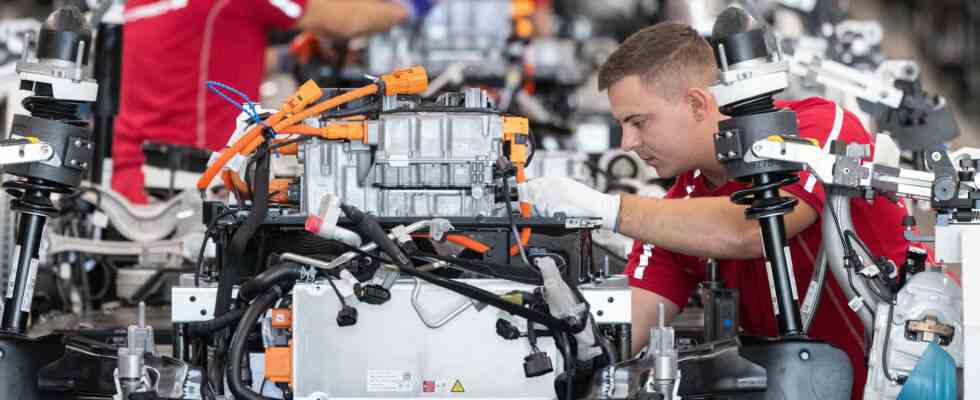Status: 03.01.2023 09:55 a.m
The sustained disruption of global supply chains has had a significant impact on the German economy since the beginning of the Corona crisis. According to the ifo Institute, the situation has recently eased further.
Supply bottlenecks in German industry eased in December for the third month in a row. According to the monthly survey by the Munich ifo Institute, 50.7 percent of companies are still suffering from the fact that ordered preliminary products and materials are difficult to obtain. In November it was still 59.3 percent.
“A resolution of the bottlenecks now seems to be emerging in many sectors,” said the head of the ifo surveys, Klaus Wohlrabe. “This will support the economy in the coming months.” Depending on the development of the corona situation in China, there could also be setbacks again, according to the economic expert. In the People’s Republic, after the end of strict corona restrictions, the disease rates are extremely high. The German economy gets more goods from China than from any other country.
Location varies from industry to industry
According to the economic researchers, the number of companies with delivery problems has fallen in almost all sectors. However, some of the current values are still well above their long-term average. Mechanical engineering and the automotive industry continue to suffer most from the shortage of materials. Around three quarters of the companies reported delivery problems here. In the electrical industry it is still around 63 percent. In other branches of industry such as paper production, on the other hand, comparatively few companies complained.
Exporters hope for catch-up effects
German exporters are hoping that trade will pick up again as bottlenecks ease. “Many companies have quite large order backlogs that could not be processed in the past few months due to material shortages,” said the President of the Federal Association of Wholesale, Foreign Trade, Services (BGA), Dirk Jandura, the Reuters news agency. “Since the material bottlenecks are weakening, there should be catch-up effects here.” This supports foreign trade in the new year.
According to a study by the Institute for Macroeconomics and Business Cycle Research (IMK), missing products from abroad such as microchips, plastics and packaging have cost German industry dearly. From the beginning of 2021 to mid-2022, goods worth almost 64 billion euros could not be manufactured due to supply bottlenecks, according to the union-related institute.

